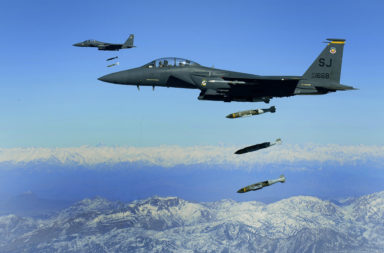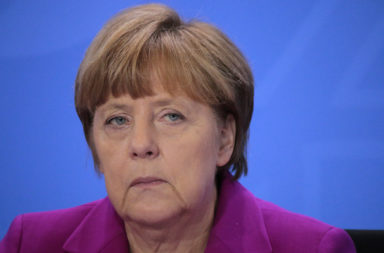The domestic political disquiet over the refugees since the March 13 state elections in Germany has not subsided. On the contrary, the debate about German identity and the chancellor’s governance has grown more intense.
Chancellor Merkel has upset Germany’s European partners. They are wary of her curious mixture of profound ethics paired with determined self-assurance and high-handed decision making. It is increasingly hard to trust these decisions on faith alone.
In Europe, Merkel’s Germany is seen as a rising power that needs to be tied down. Her defense of German euro policy – “If the euro fails, Europe fails” – is echoed in the demand for all EU countries to accept refugees.
A chancellor out of touch
At home, her administration is increasingly seen as opaque and closed. The dangerous fuse between these two dimensions is that her own party — not only her political base, which has long admired her steady hand, is now openly questioning her leadership and sense of realism, if not truthfulness.
Somber recollections of earlier single-minded decisions for which Chancellor Merkel bet on public acceptance of her wisdom begin piling up, such as when she announced the end of the military draft and an accelerated end to nuclear energy generation in Germany, after the Fukushima nuclear disaster.
The final straw that has led to this emerging break among her domestic supporters and her government is the debate over the flood of refugees from Syria. It has become a political as well as constitutional crisis.
Explaining the backlash is not easy. Few alternatives to her leadership are being discussed. Nevertheless, the conversations I have had suggest their hope that the chancellor be promoted to UN Secretary General to make way for a successor. One even suggested starting a website to promote the idea, but I have not seen it yet.
Checkbook diplomacy?
Germany must soon show results from initiatives to stop refugees before they arrive in Europe. Despite Germany’s ‘checkbook’ diplomacy in the EU with Turkey — or, put more broadly, its geo-economic strategy — is found wanting in today’s myriad security crises.
That Germany can keep the refuges from Europe is the truly gigantic bet Merkel has been making. Whatever the outcome, the civil war in Syria and the refugees it creates will continue for years.
As the United States seeks to restore the lost art of economic statecraft as Robert Blackwell and Jennifer Harris argue in the most recent Foreign Affairs , Germany is beefing up its Bundeswehr to deploy to the Baltic States after supplying arms to the Peshmerga fighting ISIS.
Germany supplied the third largest military deployment in Afghanistan for a decade.
Germany’s role as a “shaping power” (Gestaltungsmacht) through economic networks has been a successful German goal in the EU and is applied to others, notably China.
Steve Szabo advances the argument that German firms shape geopolitical interests and strategic culture, but that the Ukraine crisis opens the question of the return of geopolitical power, which Germany will have to exercise.
While for decades Germany has been seen as an economic giant and a political midget, these assessments have long been overtaken by Germany after unification.
Yes, the aversion for military power and rejection that security policy could be used to promote economic interests was emphasized by the resignation of President Horst Köhler after he asserted that role for the Bundeswehr.
History weighs heavy on German policy making
German reluctance to play a leading role in European politics has ended as the nation’s leaders search for a more assertive, but responsible foreign policy.
The debate over German decisions to send the German Federal Defense Forces (Bundeswehr) into combat in Afghanistan and support for the Peshmerga in Iraq as well as increasing Bundeswehr deployments in the Baltics shifted German political attention toward geopolitics.
German politics and decision-making are a confusing mash-up of national priorities, historical burdens about debt, war and legal imperatives and moral principles.
However, it is the debate over German identity — and whether it may be European — that has contributed to the fragmentation of politics. German identity is ethical, not ethnic.
That proposition is being tested by the rise of populism in Germany that joins other parties in Europe and in the United States.
Merkel seeks to keep Germany embedded in the rule of law that has prevailed for more than six decades, buttressing by a reawakened constitutional identity for all Germans after unification in 1990.
The constitution and Federal Constitutional Court have become active agents in German politics as the country debates more resolute steps to preserve and help shape the order based on the European Union, NATO and the United Nations.
The internal EU and German domestic debates are testing Merkel’s leadership as never before in the Federal Republic.




